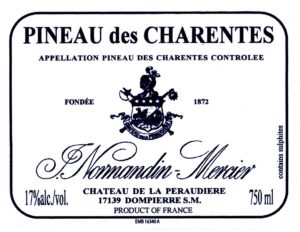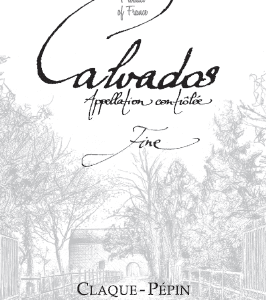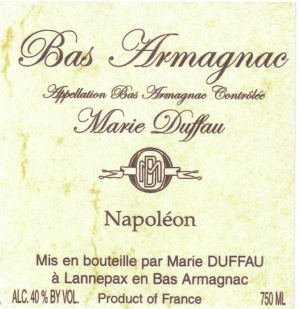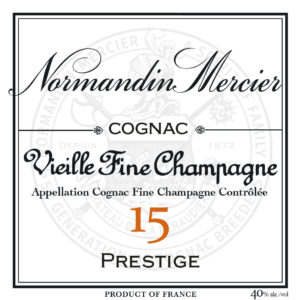ABOUT THE PRODUCER: Distillerie Claque-Pépin
The name Claque-Pépin comes from a type of apple variety, which when ripe, rattles when shaken. The name translates to the seeds (pépin) which rattle (claque). The property is located in the Normandie region, nestled between the Domfrontais and the Pays d’Auge, in the 17th century farm next to the ancient château of Serans, formerly the family estate of the Louvet family.
Claque-Pépin officially began 13 years ago. However, current owner Benoit Louvet has been immersed in the world of distilling and aging for many years. He began his “apprenticeship” fairly young with his grandfather Vital. After working for a few other Calvados producers as cellar master, he decided to start his own artisanal production and perpetuate the art of making calvados and cider, while respecting the Normand tradition and the environment. They farm 20 hectares of apple orchards.
Calvados is made from cider. Those farmers who are licensed to “boil,” travel from farm to farm with their vintage stills (alambics), distilling the cider into calvados. Operation of the Alambic: The cider enters the still through the heat exchanger in the upper region and descends tray by tray. The heat transforms the most volatile elements in the cider (water and esters) into vapor. This vapor then travels in the opposite direction, where it is concentrated with the alcohols, esters, and flavors. This is then concentrated in the smallest column from which the eau de vie emerges at 72%.
Appellation: The property and orchards are ideally situated in the Calvados AOC, just in between Pays d’Auge and the Domfrontais, producing cider and Calvados with the round and refined flavors of Calvados of the Pays d’Auge and the spicier notes typical of Calvados of the Domfrontais.
Calvados is made from cider. Those farmers who are licensed to “boil,” travel from farm to farm with their vintage stills (alambics), distilling the cider into calvados.






